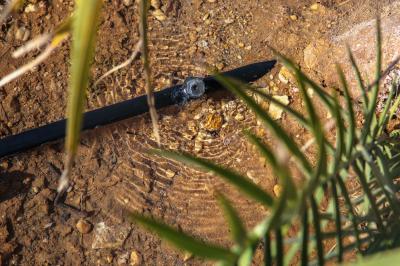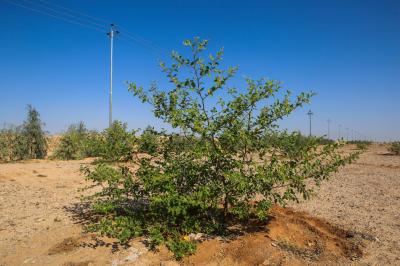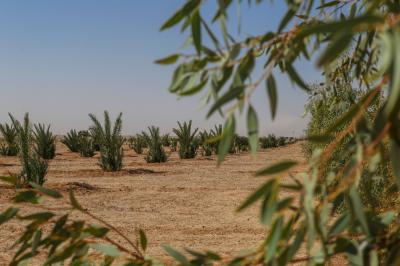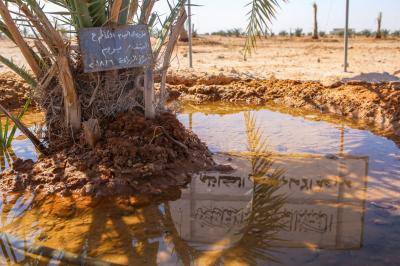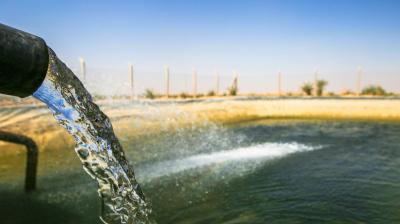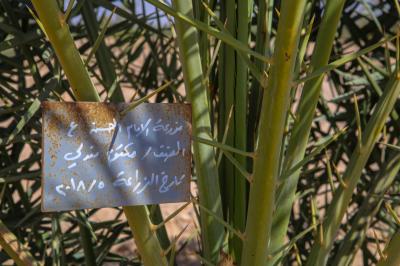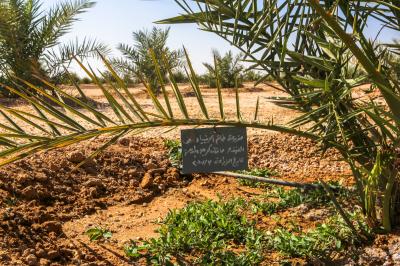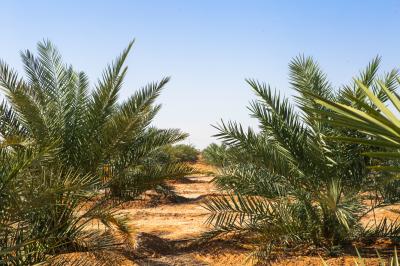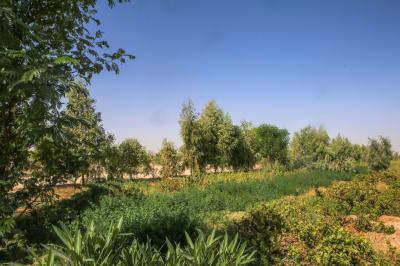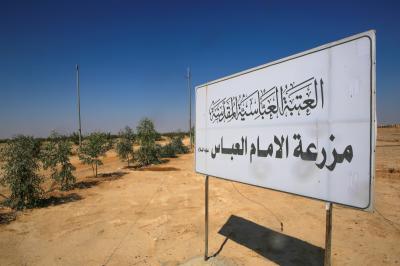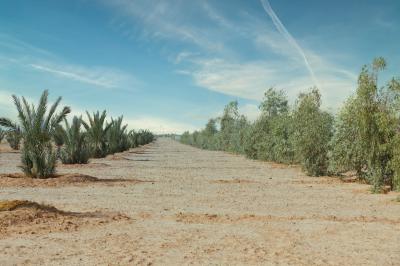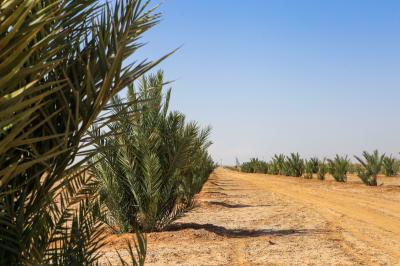The Saqi Farms project is one of the most important projects adopted by the al-Abbas's (p) Holy Shrine, through which it achieved a number of goals, the most important of which is the provision of water storage by relying on groundwater, which can be used in the event of any emergency or any stifling water crisis, and which indicators have begun to appear, by digging 52 wells, while investing the rest of the area to cultivate it with a number of agricultural crops, including palm trees.
According to the head of the engineering projects department at the al-Abbas's holy shrine, engineer Dia Majeed al-Sa'egh stated to the al-Kafeel Network: “The management of the project, which is being implemented on an area estimated at (10,250 dunums*), has allocated part of its area to cultivate date palms of rare Iraqi varieties, with good and suitable production yields to cultivate it in the Karbala desert. Some of these date varieties has disappeared and the country is importing it instead of producing it. And praise be to God, our experience has succeeded and we were able to harvest its fruits by forming a model palm plantation, to be a springboard for other farms in agricultural sites belonging to the al-Abbas's holy shrine, in a way that contributes to restoring the national agricultural identity for Iraq.
In turn, the project manager, Mr. Zaki Sahib, added: “The currently allocated area of the farm is estimated at (1000) dunums*, divided into (25) farms named after the Ahl al-Bayt (peace be upon them), such as the farms of the Master of Guardians, the Seal of the Prophets and Lady. Fatima az-Zahra (peace be upon them). Work is underway to introduce other varieties to grow the remaining ones. "
He explained: “Rare varieties of more than 95 varieties were grown in these farms. And the latest modern agricultural methods and techniques were used in their cultivation, relying on advanced fertilization and feeding programs supervised by the Khair Al-Joud Company. And more than (14 thousand) palm trees have been cultivated so far. And work is underway and continues to cultivate other areas and varieties."
He also asserted: "The farm is not limited to planting palm trees only, but middle spaces were used to grow fruit and citrus trees."
This project aims to:
1- Preserving the agricultural identity of the country.
2- These farms will serve as natural stoppers for wind and dust storms.
3- Providing job opportunities through the employment of manpower to take care of the facilities of this project.
4- Contributing in supplying the local market with good and rare quality of agricultural and field crops and fruits.
5- Employing the agricultural industrial capabilities and expertise and putting them in their proper field.
6- Investment of groundwater by drilling artesian wells.
7 - Cultivation of varieties of rare fruit trees and benefit from them as well.
8- Introducing modern agricultural and industrial techniques and mechanisms, drawing on local and international expertise.
9- Make part of this project a source of reproduction of rare types of palm trees.
10- Investment of desert farmland and development of agricultural reality.
* In Iraq, the dunum is 2,500 square metres (0.25 ha).

